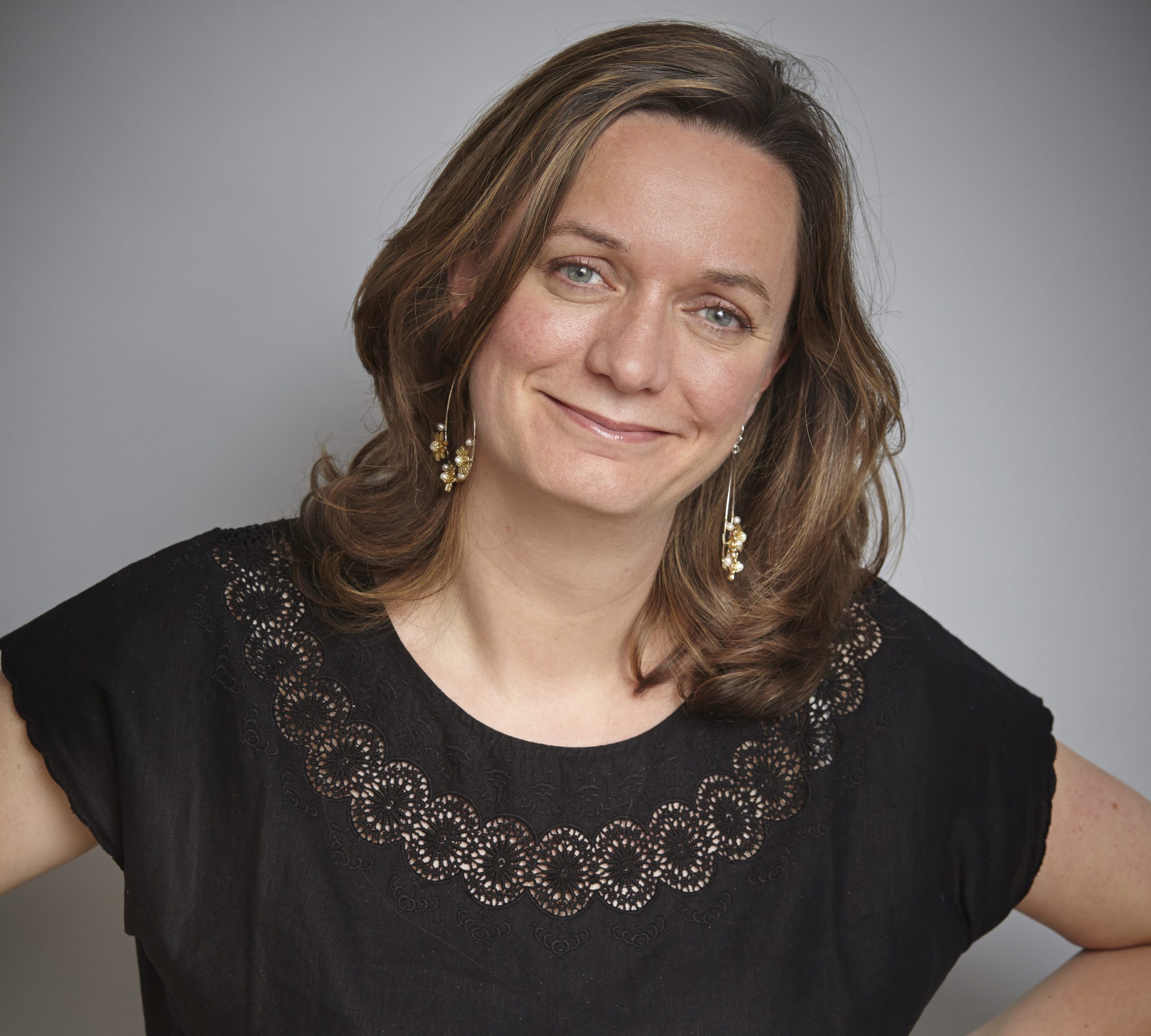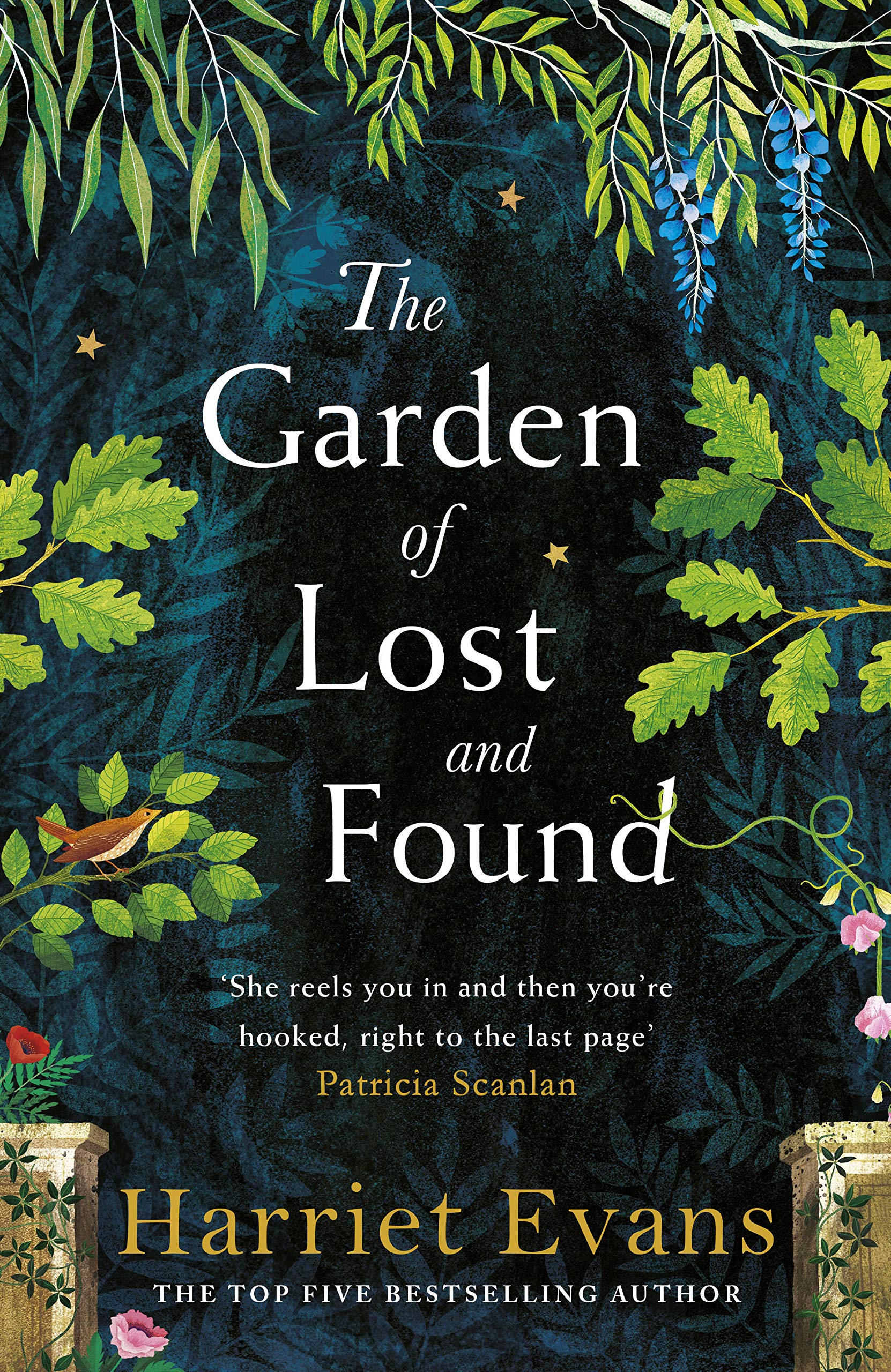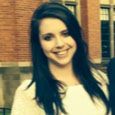Best-selling author Harriet Evans reveals her technique for penning hit novels

We ask Harriet Evans about her journey to becoming a best-selling author, find out why she proudly displays Golden Girls DVDs, and reveal tantalising details about her latest book...
Harriet Evans is no newbie to the world of writing. In fact, she's written a whopping 12 books over the course of her career.
Writing it seems is in her blood. Her father was formally an editor at Hodder, the publishing house behind some of the most successful and prolific writers, such as Jodie Picoult and John Grisham.
But after decades working in publishing herself, Harriet decided she could no longer deny herself the time to write her own books. Fast forward a few years, and she's just finished her newest novel, The Garden of Lost and Found, which goes on sale on the 18th April 2019.
The story begins with Liddy Horner in her happy family home, Nightingale House. The year is 1919, and Libby makes the shock discovery that her husband, Sir Edward, has burnt his best-selling painting, just days before his sudden death. The painting was his greatest work. Years in the future, the couple's great-granddaughter, Juliet, sets about uncovering the secret that shattered Ned's happiness...

Intrigued? We certainly are! We chat to Harriet about her career path, her writing methods and what issues play on her mind...
Tell us about your journey to becoming a published author...
I was an editor at Penguin and started writing a book in the mornings before work. I’d get up at 6am and write for an hour and a half. Now I think I must have been mad, but I had to do it. I’d been wanting to write all my life, and it was just a thing of knowing I couldn’t put it off any more.
Sign up to our free daily email for the latest royal and entertainment news, interesting opinion, expert advice on styling and beauty trends, and no-nonsense guides to the health and wellness questions you want answered.
I was sick of reading awful books on submission that went on to sell for loads of money. I still write the books I want to read, that’s the thing.
However, I lost the first novel I was writing when my hard drive failed. I woke up one morning and turned the very old laptop on and the whole thing had gone. Yes. 30,000 words. So I had to buy a new computer (thank you Dixons in 2002 for your ‘Buy now pay a year later’ scheme) and I had a year to make some money back. I started over again - and it was much better as a result - then submitted it anonymously to an agent, worked with him for a bit and then he sent it out to publishers, several offered, and I was lucky enough to get a deal.
I was lucky throughout as I worked in publishing and knew I was ‘allowed’ to do it. Lots of people think they can’t, that they’re not clever enough, they’re not right. They’re wrong.
MORE:Join w&h and The Rooftop Bookclub and meet three stars of women’s fiction, including Harriet Evans
How do you develop your characters and make them feel authentic?
A book is nothing if the characters aren’t utterly believable. I spend a lot of time thinking about them and, if the book isn’t working, I stop and spend a day getting to know a character who is troubling me. I’ll build up a past history for them, write something in their voice, find photos of someone who looks like them... it all really helps. None of it goes in the book, but it ends up making the story credible.
Share a favourite passage from one of your books and tell us why you chose it...
It’s from my last book, The Wildflowers, and it’s from near the beginning, after the daughter of the family has had a phone call from her estranged brother telling her their mother is dying and wants to see her again. Cord says no and then we start to wonder what could have led her to abandoning her family.
She knew she would not sleep, not now she had looked back, down into the darkness again. Yet through that airless night as she lay with the duvet thrown off the bed, hot and restless, arms spread wide, eyes fixed unseeingly at the ceiling, Cord could only remember the good times. They had been the Wildflowers, and they had been so blissfully, gloriously happy – hadn’t they? Before she – and it was her, the fault was all hers – had deliberately dismantled it all. Bit by bit. A family’s happiness. Her family.
Tell us about three books that changed you and your outlook on life...
I Capture the Castle, by Dodie Smith - I read it when I was 22 and couldn’t believe such a glorious story existed and I’d never read it before. It is still my favourite book. It’s so comforting, but also really dark and odd.
Margaret Mitchell's Gone With the Wind - I was absolutely obsessed with it from the age of fourteen to eighteen. Totally immersive fiction. I wouldn’t recommend it now though; it’s just too weird in its romanticising of the Deep South, and how slavery was okay because the slaves really quite liked it...
He’s Just Not That Into You - that book really did change me from someone who wanted to persuade people into liking me into someone who had the self-worth to believe I shouldn’t go out with men who were foolish enough not to want to go out with me! I owe it a lot.
What are the best and worst pieces of advice you've ever been given?
The best piece of advice came from a friend who works in TV. I was describing how I’d got stuck with editing my novel a few years ago: all I saw was how bad it was. He was trying to understand what I meant and he said thoughtfully: ‘So it’s a bit like when the camera is being moved after one particular shot, and you pull it up and out of focus to move it, and in that second you see everything in the studio. It’s really blurry and indistinct but you can see everything. I always like seeing everything, even if it is all wrong.’
I love that. It reminds me that writers panic too easily. You have to go wrong to go right. Enjoy the chaos of it being out of focus for a while, instead of panicking that it’s wrong.
The worst piece of advice... I did once have three sets of editorial notes from my editor, my agent, and a junior editor. They all pointed out different things that were wrong with the book and suggested different ways to fix it. It nearly finished me off.
What feminist issues do you think are most pressing today?
Other than, you know, the whole sexual assault and harassment and killing of women on a daily basis? Mainly that women are asked these questions instead of asking men for once! The women I know are tying themselves in knots about work/life balance, gender pay gaps, raising their girls in the ‘right way’ and I never once see men being asked: what can you do?
That, and the way the cultural gatekeepers are men. I grew up being told both insidiously and overtly that women weren’t funny, that books and music by men were worth more than women, and that decisions made by men were more likely to be right just because their voices were lower, basically. That is changing slowly, but in the meantime it is a vast relief to display my copies of Georgette Heyer and my Golden Girls DVDs with pride.
Harriet Evans will be in conversation with w&h books editor and author Isabelle Broom later this month. The event takes place on Wednesday the 24th of April in London.
Tickets are £10 and include a welcome drink, nibbles and a tote bag. Please arrive from 6:30pm for a prompt 7pm start. The event will finish at 8:45pm. You can buy tickets for the event HERE.
We hope to see you there!
Amy Hunt is an experienced digital journalist specialising in homes, interiors and hobbies. She began her career working as the features assistant at woman&home magazine, before moving over to the digital side of the brand where she eventually became the Lifestyle Editor up until January 2022. Amy won the Digital Journalist of the Year award at the AOP Awards in 2019 for her work on womanandhome.com.

